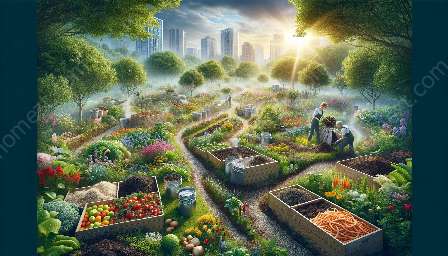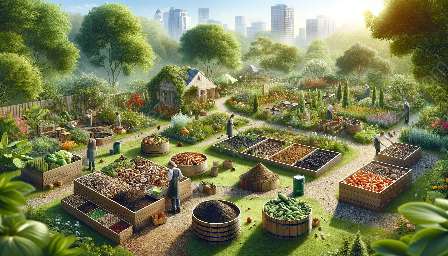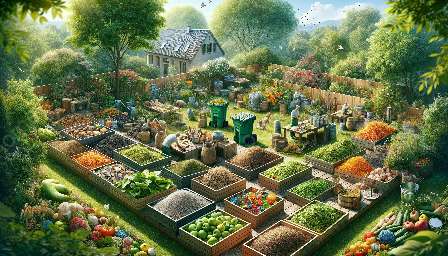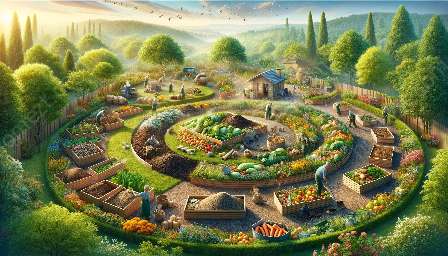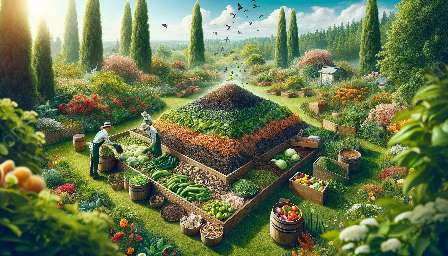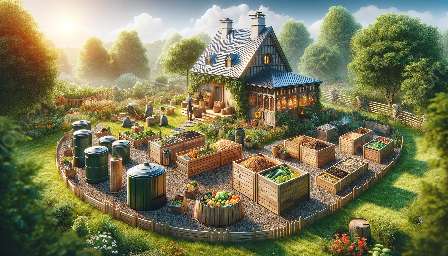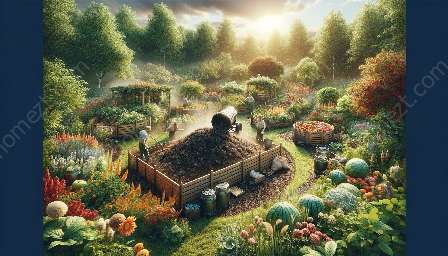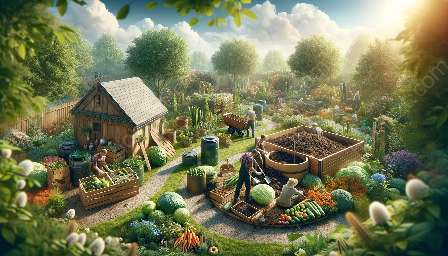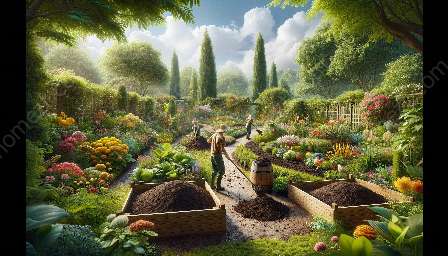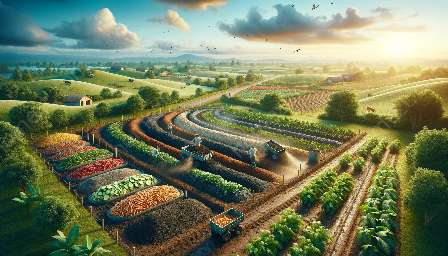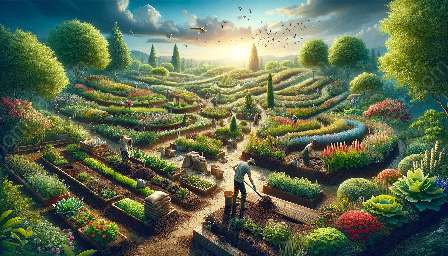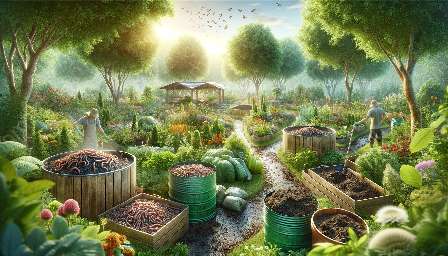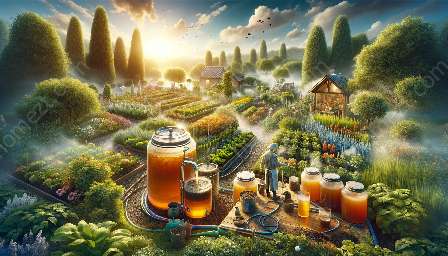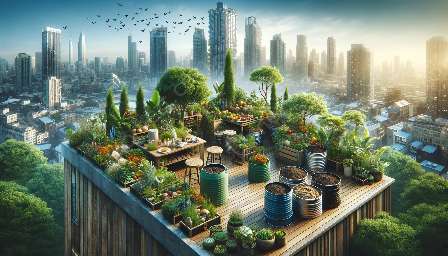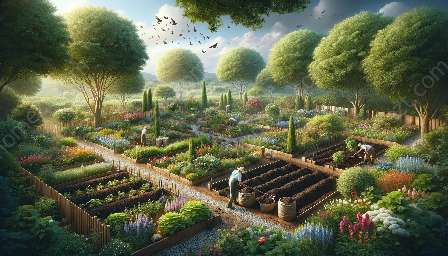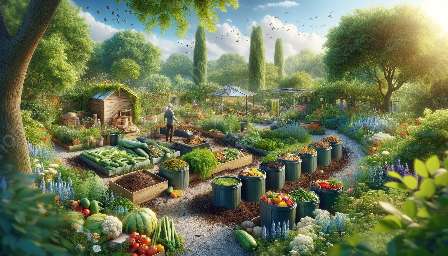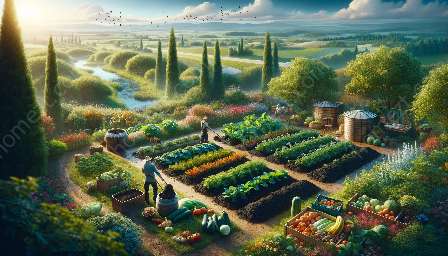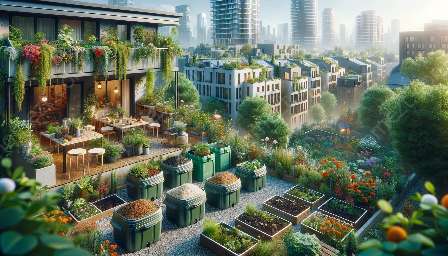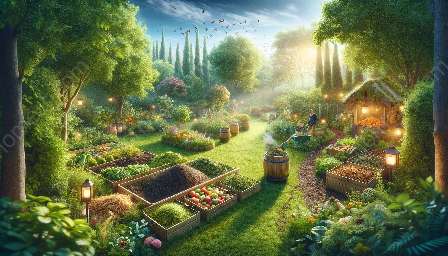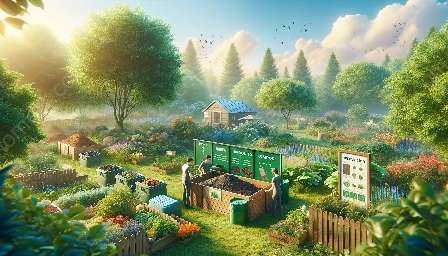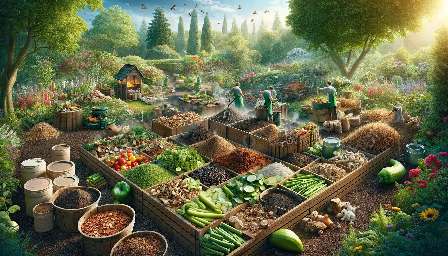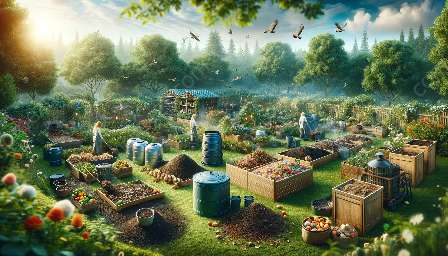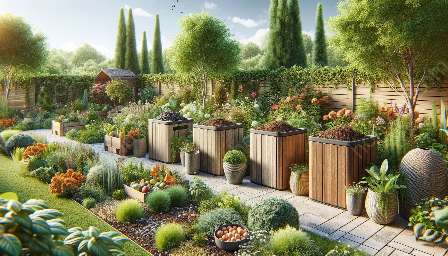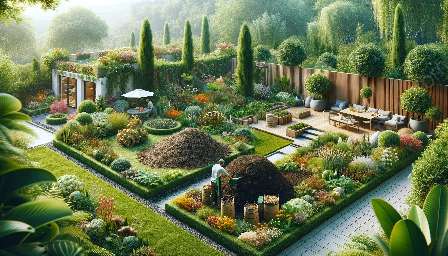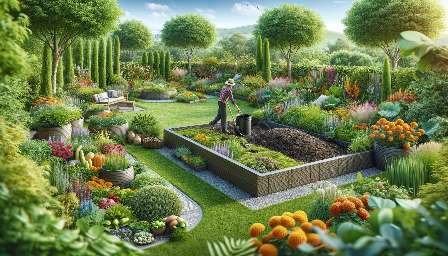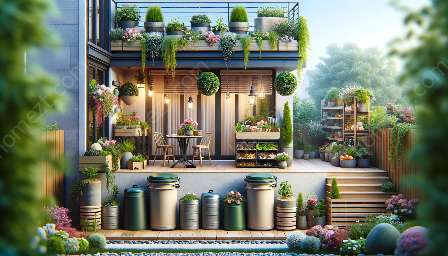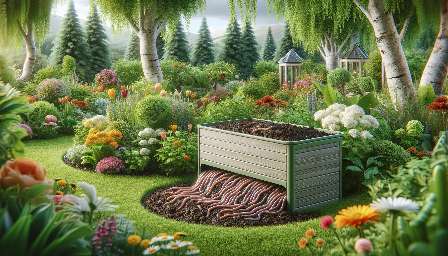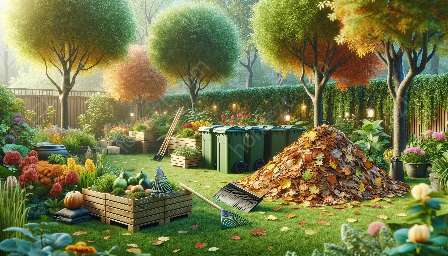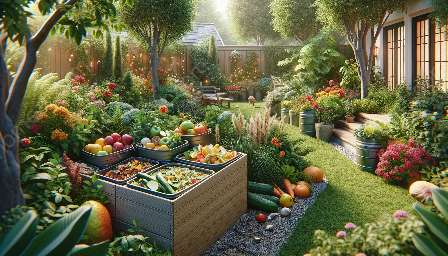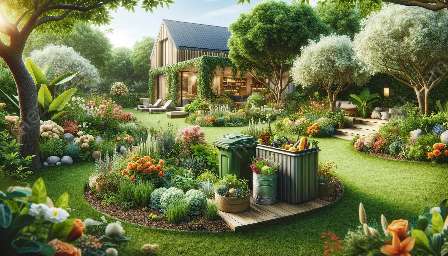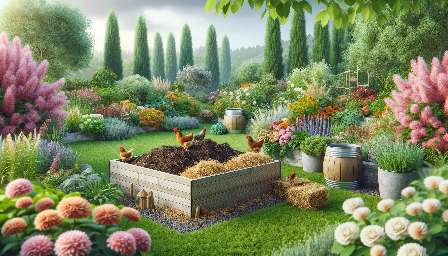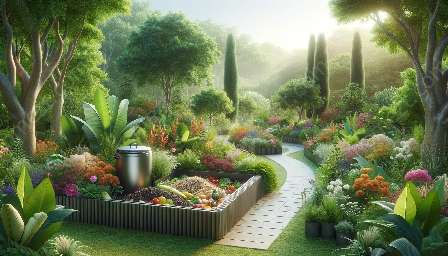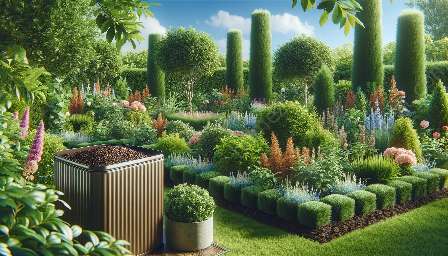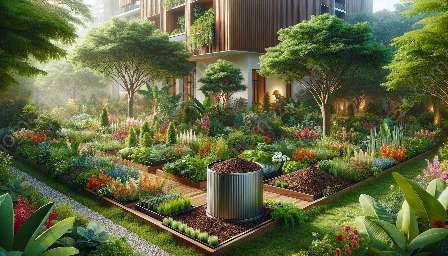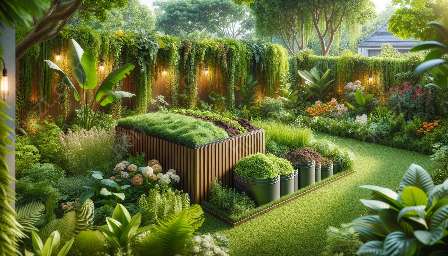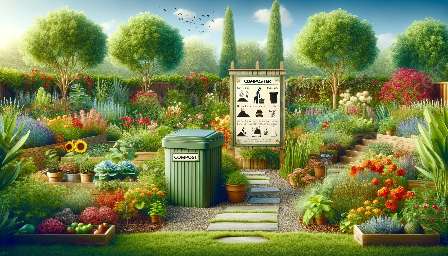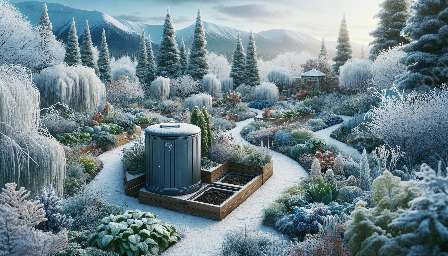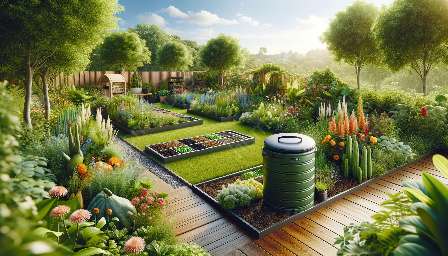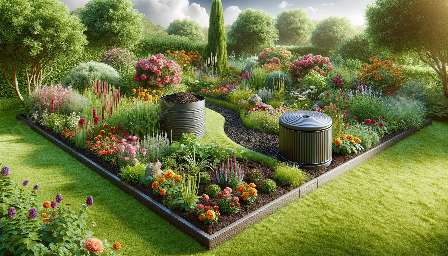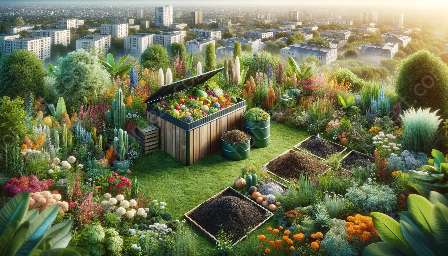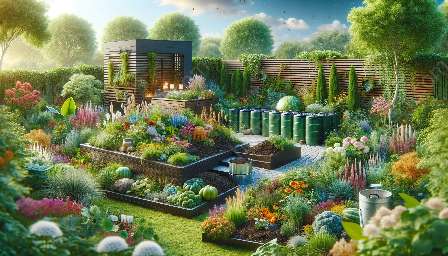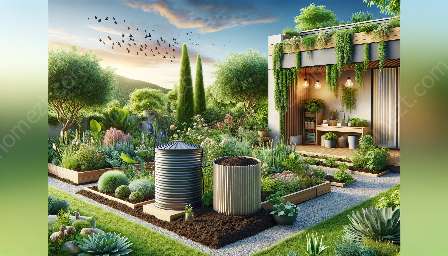Composting is a natural process that transforms organic materials into nutrient-rich soil amendments. Maintaining a compost pile is essential for producing high-quality compost that is beneficial for gardening and landscaping. By understanding the key principles and techniques of compost maintenance, you can create a thriving compost pile that supports a healthy garden and lush landscaping.
Understanding Composting
Before delving into the specifics of maintaining a compost pile, it's vital to understand the basics of composting. Composting is the decomposition of organic materials, such as kitchen scraps, yard waste, and other biodegradable items, into a dark, crumbly substance known as compost. This process is facilitated by the action of microorganisms, such as bacteria and fungi, along with macroorganisms like earthworms and insects.
Composting requires the right combination of organic matter, moisture, aeration, and temperature to create an optimal environment for decomposition. When these factors are balanced, the result is nutrient-rich compost that can enhance soil fertility and structure.
Key Elements of Compost Maintenance
Proper maintenance is crucial for the success of a compost pile. Here are the key elements to consider when maintaining a compost pile:
- Turning the Pile: Regularly turning or aerating the compost pile helps distribute oxygen, which is essential for the decomposition process. This also prevents the pile from becoming compacted and encourages even decomposition.
- Monitoring Moisture Levels: Compost should be as damp as a wrung-out sponge. If it's too wet, it can become anaerobic and develop unpleasant odors. If it's too dry, decomposition slows down. Regularly monitoring and adjusting moisture levels is crucial for maintaining a healthy compost pile.
- Balancing Materials: A balanced mix of green (nitrogen-rich) and brown (carbon-rich) materials is essential for effective composting. Green materials include kitchen scraps, grass clippings, and fresh yard waste, while brown materials consist of dry leaves, straw, and shredded paper. Maintaining this balance ensures that the pile decomposes efficiently and prevents odors and pests.
- Managing Temperature: Compost piles generate heat as a result of microbial activity. Monitoring the internal temperature of the pile can indicate the progress of decomposition. Turning the pile can help regulate the temperature and ensure that the compost reaches the ideal heat levels for decomposition.
Benefits of Compost for Gardening and Landscaping
Using compost in gardening and landscaping offers numerous benefits:
- Soil Enrichment: Compost provides essential nutrients and improves soil structure, promoting healthy plant growth.
- Moisture Retention: The organic matter in compost helps soil retain moisture, reducing the need for frequent watering.
- Microbial Activity: Compost introduces beneficial microorganisms to the soil, enhancing its biological activity and nutrient cycling.
- Weed Suppression: When used as a mulch, compost can help suppress weed growth, reducing the need for herbicides and manual weeding.
- Environmental Benefits: Using compost contributes to waste reduction by diverting organic materials from landfills and reducing greenhouse gas emissions.
Troubleshooting Common Compost Pile Issues
Even with proper maintenance, compost piles may encounter challenges. Here are common issues and how to address them:
- Odor: Foul odors can result from anaerobic conditions caused by excess moisture or lack of aeration. Turning the pile and adding dry brown materials can help eliminate odors.
- Pest Infestation: Pests such as flies and rodents may be attracted to the compost pile. Turning the pile regularly and avoiding adding meat or dairy products can discourage pests.
- Slow Decomposition: Inadequate moisture, lack of aeration, or imbalance in carbon and nitrogen materials can slow down decomposition. Adjusting these factors can speed up the process.
- Weed Seeds: Some compost piles may contain viable weed seeds. To prevent weed growth, avoid adding weed-infested materials and maintain high temperatures in the pile.
Conclusion
Maintaining a compost pile is an art that requires dedication and attention to detail. By mastering the principles of compost maintenance, you can create a sustainable and productive compost pile that enriches your gardening and landscaping endeavors. With the right techniques and a commitment to sustainability, composting can be a rewarding aspect of your journey toward a vibrant and flourishing outdoor environment.

